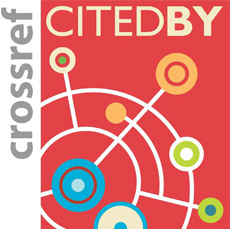ISSN : 2288-1484(Online)
DOI : https://doi.org/10.12812/ksms.2013.15.4.365
조직공정성 인지도와 직무스트레스의 관계 및 신뢰의 조절효과
The relationship between perceived organizational justice and job stress, and the moderating effect of trust
Abstract
- 0060-01-0015-0004-42.pdf390.1KB
Reference

2.Ahnquist, J., S. P. Wamala, and M. Lindström (2010), "what has trust in the health-care system got to do with psychological distress? analyses from the national swedish survey of public health", International Journal for Quality in Health Care, 22(4), 250 – 258.


3.Ceylan, A. C., and S., Sulu(2010), "Work alienat ion as a mediator of the relationship of procedu ral injustice to job stress", South East European Journal of Economics and Business, 5(2); 65-74.

4.Chong, M. K(2009), "The Effect of Employees' Trust to Manager and Organizational Justices on the Adoption of Managerial Innovation", Journal of Management Consulting, 9(1); 69-94.
5.Chun, Y. S., Chun, K. M., Y. S., Kim(2012), "A Study on Relations between Procedural Justice, Trust in Administration, Job Satisfaction, Organizational Commitment, and Job Stress of Hotel Business Employee for Restructuring Focusing on Business Department of First: Class Hotels in Busan Area", Korea Journal of Tourism and Hospitality, 26(4), 181-205.
6.Cohen, J, and P. Cohen(1983), Applied multiple regression/correlation analysis for the behavioral science, Hillsdale, New Jersey: Laerence Erlbaum Associates.
7.Judge, T. A., and Colquitt, J. A.(2004), "Organiza tional justice and stress: The mediating role of work-family conflict", Journal of Applied Psyc hology, 89(3), 395-404.


8.Greenberg, J.(1996), The Quest for Justice on the Job, Thousand Oaks: SAGE Publications.
9.Kacmar, K. M., D. G. Bachrach, K. J. Harris, and S. Zivnuska(2010), "Fostering good citizenship through ethical leadership: Exploring the modera ting role of gender and organizational politics", Journal of Applied Psychology, 96(3); 633-642.


10.Kang, D. M. et al.(2005), Modern understanding of job stress, Koryo Medical Book.
11.Karambayya, R., and Brett, J. M.(1989), "Mana gers handling disputes: Third-party roles and perceptions of fairness", Academy of Manage ment Journal, vol. 32, pp. 687-704.

12.Kim, S. H(2001), Organizational commitment and turnover intention of social workers, Ms. dissertation of Ewha University.
13.Kim, W. I, and K. Y. Ahn(2013), "The effects of job characteristics and psychological stress response on accidents, and the mediating effect of psycholog ical stress response", Journal of the Korea Safety Management & Science, 15(1);. 41-49.

14.Konovsky, M., and Pugh, D.(1994), "Citizenship behavior and social exchange." Academy of Management Journal, 37, 656-669.

15.Lewicki, R. J. and Bunker, B. B.(1996), "Developing and maintaining trust in work relation ships" in R. M. Kramer & T. Tyler (eds.), Tru st in organizations: frontiers of theory and rese arch, Newbury Park, CA: Sage.

16.Lewis, J. D. & Wiegert, A.(1985), "Trust as a social reality" Social Forces, 63, 967-985.

17.McAllister, D. J.(1995), "Affect and cognitionbased trust as foundations for interpersonal cooperation in organizations", Academy of Management Journal, 38(3), 24-59.

18.Mishra, A. K., and Mishra, K. E.(1994), "The role of mutal trust in effective downsizing stratiges", Human Resource Management, 33(2), 261-279.

19.Niehoff, B. P., & Moorman, R. H.(1993), "Justice as a mediator of the relationship between moni toring and organizational citizenship behavior," Academy of Management Journal, vol. 36, pp. 527-556.

20.NIOSH(1999), Stress at work, DHHS(NOSH), Publication, 99-101.
21.Park, J. D., and C. Y. Huh(2012), "The Modera ting effect of Perceived Organizational Support and Leader-Member Exchange on the Relati onship between Organizational Justice and Organizational Effectiveness - Focus on Military Organizations", Journal of Human Resource Management Research, 36(4), 195-225.
22.Park, S. G.(2011), Organization and Human Hehavior, Myung Publishing Co.
23.Price, J. L., and C. W. Mueller(1986), "Absenteei sm and turnover of hospital employees," Monogra pzhs in Organizational Behavior and Industrial Relations, 5, JAI Press Inc.
24.Van Dyne, L., Graham, J. W., & Dienesch, R. M.(1994), "Organizational Citizenship Behavior: Construct redefinition, measurement, and valid ation." Academy of Management Journal, 37, pp. 765-802.

25.Zellars, K. L., Liu, Y., Bratton, V., Brymer, R., and P. L. Perrewe(2004), "An examination of the dysfunctional consequences of organizational injustice and escapist coping", Journal of Managerial Issues, 16(4); 528-545.
-
-
Online Submission
http://submission.koreasafety.or.kr
-
KSSM
The Korean Society of Safety ManagementWaste Society
-
Editorial Office
Contact Information- Tel: +82.31.336.2844
- Fax: +82.31.336.2845
- E-mail: safety@mju.ac.kr -

-

-

-

-

-

-







